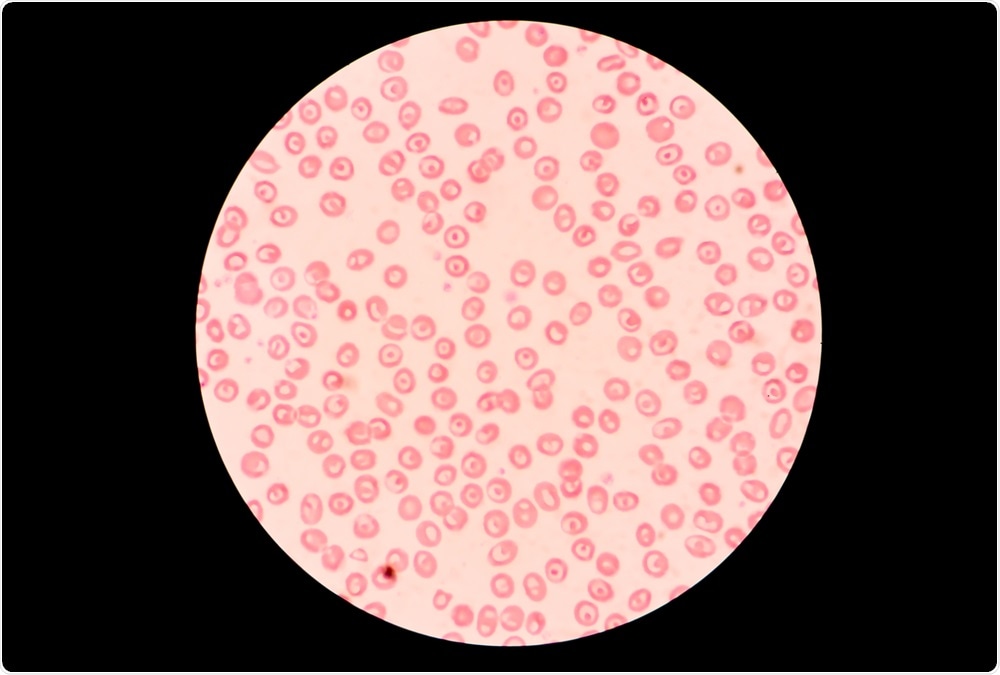Having abnormally small red blood cells, a condition known as microcytosis could indicate cancer, according to new research led by a University of Exeter student working with a world-leading team.

Image Credit: OsspixSanGRienTo/Shutterstock.com
Medical Sciences student Rhain Hopkins was the lead author of the study of more than 12,000 UK patients aged over 40, which found that the cancer risk in males was 6.2 percent, compared to 2.7 percent in those without microcytosis.
The research, funded by Cancer Research UK and NIHR and published in BJGP, found that in females, the risk of cancer was 2.7 percent in those with microcytosis, compared to 1.4 percent without.
Of more than 108,000 followed within the Clinical Practice Research Datalink records, 12,289 patients with microcytosis were followed up. Of those, 497 developed cancer within a year.
Microcytosis is related to iron deficiency and genetic conditions which affect hemoglobin in the blood. Similarly, iron deficiency has been identified as a feature of some cancers, particularly colorectal. Microcytosis is easily identified in a routine blood test.
Research targeted at diagnosing cancer earlier is so important in reducing the burden of this devastating disease. The identification of risk markers, such as microcytosis, that are relevant to a range of cancers, can have a real impact in primary care. Being part of this research has been a very rewarding experience and getting my first paper published is such a massive achievement."
Rhian Hopkins
Professor Willie Hamilton, at the University of Exeter Medical School, who oversaw the research, said: "Overall, the risk of cancer in patients with microcytosis was still low, however, our research indicates a need to investigate cancer. In two patients with cancer out of three, the possibility of cancer is fairly easy to identify.
For the other third, symptoms are often vague and don't clearly point to cancer. For these patients, GPs have to use more subtle clues to recognize that cancer may be present. Small red cells have long been recognized with colon cancer, but this study shows that they are a much broader clue, alerting the doctor to the small possibility of one of several possible cancers."
Rhian was a dedicated, proactive, and enthusiastic student and an absolute pleasure to work with. As part of her Professional Training Year (PTY), Rhian undertook this standalone project of investigating the role of microcytosis as a possible early marker of cancer.
She taught herself to use Stata statistical analysis software, and with guidance learned how to build the database from which to run the analyses. She also analyzed the data and wrote up the paper for publication, making a meaningful contribution to the potentially life-saving area of a cancer diagnosis."
Dr. Elizabeth Shephard
"The PTY placement is a fantastic opportunity for undergraduates to gain valuable research work experience, and for academics to work with bright students. I would not hesitate to recommend the program."
The paper is entitled Microcytosis as a risk marker of cancer in primary care: a cohort study using electronic patient records and can be found here.